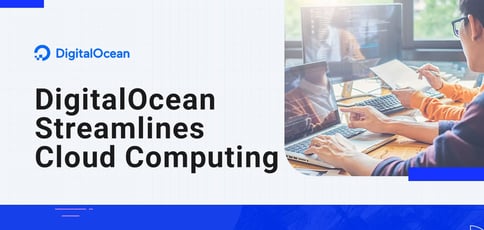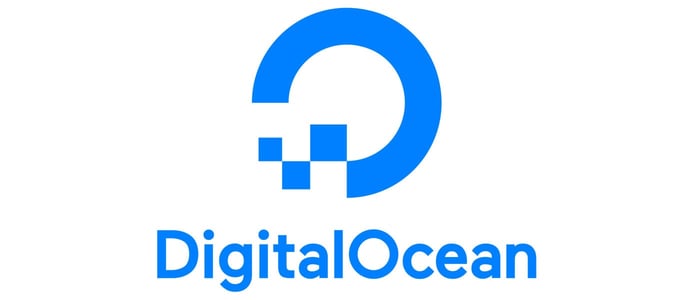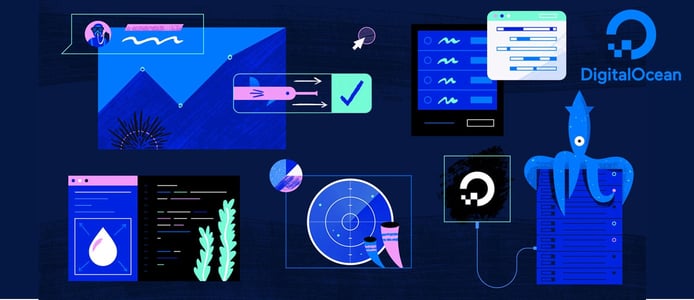
TL; DR: Since 2011, DigitalOcean has been on a mission to simplify cloud computing for developers, entrepreneurs, and SMBs. The company’s business-critical infrastructure and fully managed services make it possible to build, deploy, and scale applications designed to drive growth. The company’s latest offering, Managed MongoDB, empowers users to build scalable, high-performance apps without administrative headaches.
In business, there’s no greater sin than to overpromise and underdeliver. Yet, in the name of a quick buck, far too many salespeople do just that — pitch products in a way that will appeal to financial decision-makers regardless of whether those products will meet end-user needs.
In the tech space, smart businesses know that unhappy developers and sysadmins won’t settle for subpar tools when doing their jobs. Ultimately, no matter how polished a sales presentation, these end users will fight to have the right tools in their digital toolbox.
DigitalOcean realizes this truth and has ingrained it into the company’s mission, vision, and values.
“We stand apart from our competition in that we want to delight not only the decision-maker but also the practitioner, the user who is actually going to use our cloud,” said Raman Sharma, VP of Product Marketing at DigitalOcean. “That’s always been our motto. It’s important to us, and it’s important to the audience that we cater to.”

DigitalOcean makes cloud computing more accessible to its developer community through intuitive products and investments in education around technology and the cloud. The goal is to demystify the cloud through tools and services curated for developers, startups, and SMBs working on everything from simple blogs to massive Software-as-a-Service (SaaS) applications. The company’s complete cloud platform includes streamlined solutions for complex tasks like building web and mobile apps, website hosting, building streaming media apps, and gaming development. And, with DigitalOcean’s managed services, customers can spend less time managing infrastructure and more time creating applications that spur business growth.
Serving Up Operational Agility Since 2011
DigitalOcean, headquartered in NYC with datacenters across the globe, was started by Mitch Wainer and brothers Ben and Moisey Uretsky in 2012. The idea was to help developers and IT folk deploy and scale applications using a strategic cloud services lineup.
“Initially, we focused a lot on virtual private servers and VMs — building applications with Infrastructure-as-a-Service (IaaS) offering,” Raman said.
DigitalOcean refers to its bread-and-butter virtual machines as Droplets. These scalable, easy-to-deploy solutions come in basic, general-purpose, CPU-optimized, and memory-optimized configurations. But DigitalOcean has also made investments designed to keep up with significant growth in emerging areas of cloud application development.
“Of late, a lot of these high-level, slightly more abstracted Platform-as-a-Service (PaaS) offerings have become very popular with serverless and JAMstack solutions on the one hand, and then cloud-native Kubernetes services on the other hand.”

“We introduced managed Kubernetes clusters a few years ago, and it has been going very well,” Raman said. “A lot of developers are now flocking to Kubernetes because it allows them to utilize their infrastructure more optimally while building reliable and highly available applications.”
Last year, DigitalOcean unveiled App Platform, a scalable solution for building, deploying, and managing apps without infrastructure headaches. The PaaS offering allows users to deploy code directly from GitHub and GitLab repositories.
“Within the same mindset, we’ve also noticed that developers — especially at small businesses — don’t want to spend a lot of their time and energy on infrastructure management, whether it is for their own applications or complex third-party software, like databases,” Raman said.
To that end, DigitalOcean also offers fully-managed database-as-a-Service (DBaaS) packages for MongoDB, MySQL, Redis, and PostgreSQL.
Building — and Simplifying — the Cloud Tools Users Need
Between hosting, storage, database, and Kubernetes solutions, DigitalOcean certainly boasts a broad portfolio of products and services. But the company is careful not to stretch itself too thin and sacrifice quality as a result.
“We only offer the services that customers really need,” Raman said. “We’re never going to have 170 services just to have a new announcement every single week. Our core claim to fame is that we provide the most intuitive experience when it comes to cloud computing.”
At the end of the day, DigitalOcean is all about prioritizing ease of use.
“We want to make sure that developers, entrepreneurs, and small-to-medium businesses spend as little time as possible on the heavy lifting in terms of infrastructure — and as much time as possible on getting to their business outcomes, whether it is running a SaaS business, a managed hosting business, or anything else.”
To do so, DigitalOcean has curated an essential set of products and services on which the company remains firmly committed.
“If we feel that our customer base needs something more, for example, more database engines or maybe need a certain type of compute, we will seriously look into investing in those areas as well,” Raman said. “But we will not create products just because we can.”
The company also focuses on building up the developer community. Raman said that, despite popular opinion, business and community investments can indeed go hand in hand.
We constantly hear from businesses that the reason they discovered us was because of a tutorial that we created around, for example, how to fine-tune your Kubernetes or how to install Nginx on Ubuntu 18.04,” he said.
New: Managed MongoDB
In late June, DigitalOcean announced the general availability of Managed MongoDB, a DBaaS offering starting at $15 per month. DigitalOcean is selling the solution in partnership with, and certified by, MongoDB Inc. Raman said no other large cloud provider offers such a solution.
“MongoDB really aids in rapid application development and allows developers to evolve their application as they go along, rather than binding you into a mode of operation where you have to think about rigid database schemas in advance,” he said.
But the database management aspect of MongoDB, despite its developer-friendly characteristics, remains a pain point.
“Our managed offering takes care of that; it provides you high availability, reliability, and security — all of the things that you expect from a fully managed service,” Raman said. “And because of this partnership that we have with MongoDB, we can provide updates to the latest versions of MongoDB as — and when — they become available, which is not something that many other managed services can claim.”
As with all of its products and services, DigitalOcean’s developed its managed MongoDB solution in step with customer demand.
“We know internally that a lot of people are running self-managed MongoDB instances on our droplets,” Raman said. “We know the demand is there and that this service will be meaningful to our customers.”
Moving forward, DigitalOcean will continue to pursue a customer-centric approach to development. Recently, DigitalOcean expanded its existing serverless offering by acquiring serverless startup Nimbella. With Nimbella, DigitalOcean continues to remove the burden of managing infrastructure so their customers can continue to develop ideas faster.
“The cloud-native Kubernetes area will continue to be very important for us,” Raman said. “We are investing in that area — and in a big way. There’s such momentum around Kubernetes and cloud-native, and I’m thrilled that we are riding it.”
HostingAdvice.com is a free online resource that offers valuable content and comparison services to users. To keep this resource 100% free, we receive compensation from many of the offers listed on the site. Along with key review factors, this compensation may impact how and where products appear across the site (including, for example, the order in which they appear). HostingAdvice.com does not include the entire universe of available offers. Editorial opinions expressed on the site are strictly our own and are not provided, endorsed, or approved by advertisers.
Our site is committed to publishing independent, accurate content guided by strict editorial guidelines. Before articles and reviews are published on our site, they undergo a thorough review process performed by a team of independent editors and subject-matter experts to ensure the content’s accuracy, timeliness, and impartiality. Our editorial team is separate and independent of our site’s advertisers, and the opinions they express on our site are their own. To read more about our team members and their editorial backgrounds, please visit our site’s About page.

